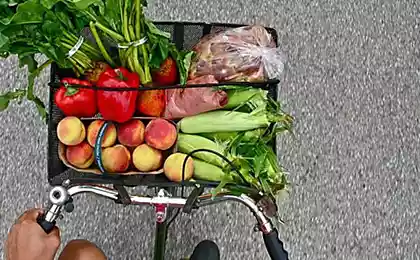422
British scientists have told how to teach kids to eat vegetables
The problem of proper nutrition of children is particularly acute for many parents. Teenagers often prefer products that are really useful does not turn the language. And to eat fresh vegetables, dairy products and cereals, for them is sheer drudgery.
The cause of these problems found at the Institute of psychology of the British city of Leeds, which experts conducted a large-scale monitoring of a group of 332 children from different European countries, aged 4 months. Scientists analyzed the diet of children until their adulthood, and as a result have managed to establish an interesting pattern.
Those children who from the first months of life received the food fresh vegetables, with pleasure and continued to have them in the future. Those children whose parents preferred mixtures for infants, and expanded the diet at the expense of vegetables, in most cases in the future is not perceived as tasty and necessary product.

British researchers attribute this to a psychological attachment to a certain food. The minds of children in the first months of life is still soft and pliable, and all that it takes almost flawlessly absorbs them. It concerns and products to include in the child diet vegetables, children's minds automatically perceive them as a tasty and healthy product, and this relationship is firmly set almost for life.
Otherwise, on a subconscious level there is a prejudice to vegetables as an unknown food, and often to overcome it, and to turn vegetables into favorite product is almost impossible.
On recommendation of inclusion in the diet of newborns vegetables, scientists noted that to start the process to the moment when the child connects to the power supply blended food. At first, it has to be vegetable, do not cause allergies, and only after getting used to them can be connected to the wider vegetable diet, including tomatoes, cucumbers and similar products.
Source: zeleneet.com























